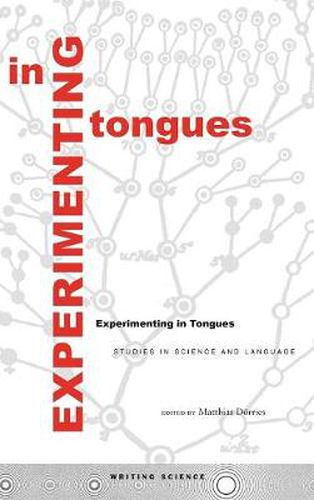Readings Newsletter
Become a Readings Member to make your shopping experience even easier.
Sign in or sign up for free!
You’re not far away from qualifying for FREE standard shipping within Australia
You’ve qualified for FREE standard shipping within Australia
The cart is loading…






References to language abound in the sciences: biologists speak about reading the human genome and rewriting the genetic code, computer scientists develop programming language and mathematicians seek a universal symbolic language . What is behind these references to language, and what do they say about how science actually works? This volume brings together scholars in the history of science to address these questions from a variety of perspectives: the historical, methodological and ideological motivations behind scientists’ use of language metaphors. In so doing, they ask whether and under what conditions analogies to language gain power, whether and under what conditions they are replaced by more fruitful ones, and, crucially, whether nature ever really operates and develops like a language. Against recent trends in rhetorical studies of science, the essays in the volume resist reducing language to a role as the symbolic embodiment of larger social forces. Instead, they focus on language’s productive power as a generator of knowledge. For scientists in various disciplines, language is much more than a means of expression through which they preferentially argue their cases. It is a conceptual tool for scientific inquiry, and the choices scientists make vary over time with their ever-evolving knowledge about language and, equally, with shifting interests and means of inquiring into nature. The essays thus demonstrate a situation of mutual adaptation between the linguistic and scientific realms, and of continuous adjustments between knowledge about language and knowledge about nature.
$9.00 standard shipping within Australia
FREE standard shipping within Australia for orders over $100.00
Express & International shipping calculated at checkout
References to language abound in the sciences: biologists speak about reading the human genome and rewriting the genetic code, computer scientists develop programming language and mathematicians seek a universal symbolic language . What is behind these references to language, and what do they say about how science actually works? This volume brings together scholars in the history of science to address these questions from a variety of perspectives: the historical, methodological and ideological motivations behind scientists’ use of language metaphors. In so doing, they ask whether and under what conditions analogies to language gain power, whether and under what conditions they are replaced by more fruitful ones, and, crucially, whether nature ever really operates and develops like a language. Against recent trends in rhetorical studies of science, the essays in the volume resist reducing language to a role as the symbolic embodiment of larger social forces. Instead, they focus on language’s productive power as a generator of knowledge. For scientists in various disciplines, language is much more than a means of expression through which they preferentially argue their cases. It is a conceptual tool for scientific inquiry, and the choices scientists make vary over time with their ever-evolving knowledge about language and, equally, with shifting interests and means of inquiring into nature. The essays thus demonstrate a situation of mutual adaptation between the linguistic and scientific realms, and of continuous adjustments between knowledge about language and knowledge about nature.